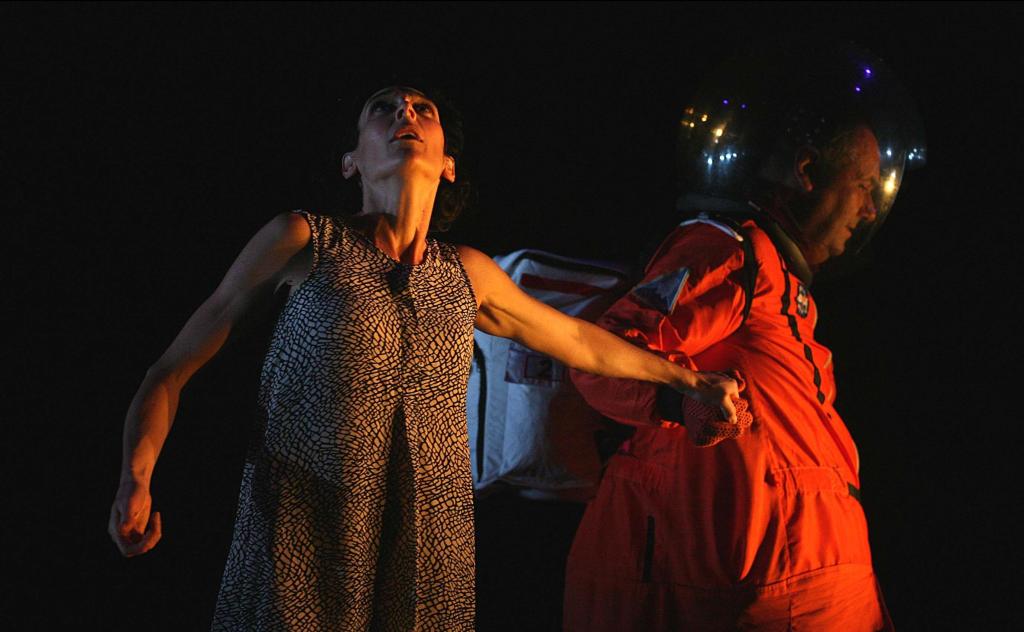In the extraordinarily challenging situation in which our Australian arts industry finds itself due to the COVID-19 crisis, one asset may be in dangerously short supply – moral leadership.
The definition of moral leadership is up for debate, but at its essence it’s when a leader aligns their actions with an agreed set of common values. In the personal sense, maybe it’s just treating people the way you want to be treated (the so-called ‘Golden Rule’) but in an organisational or industry setting it requires infusing often difficult decision-making with strong ethical clarity. In other words, at least making sure that the decisions being made match the values espoused by an organisation in its strategic plan.
In our current crisis, moral leadership requires a shift away from our society’s dominant paradigm of valuing and pursuing power and status, and a shift towards viewing those that serve others as having the highest rank or station in our community – of being our true leaders.
For those in acknowledged positions of leadership and power it means a realignment of how they think about that power. The recently departed and eminently quotable writer Toni Morrison said: ‘If you have some power, then your job is to empower somebody else.’
In the midst of the confusion and anxiety of our industry’s current crisis, much is being asked of our leaders. So far, most of the discussion in the industry has focussed on the failings of Government to adequately support our industry at its time of greatest need – we’re talking about subsidy schemes, about wage support, and about the financial mechanisms required to try and save arts companies.
As we should, we hold it as an absolute truth that the arts and artists are valuable, and everything should be done to support them. But most of our discussion about whose responsibility this should be is externally focussed – Government doesn’t fund us enough (true) and people don’t value the arts as they should (also true). But if our industry now finds itself facing an existential threat, without any roadmap forward, are we as an industry willing to bear some of the responsibility for the perilous state that so many artists find themselves in?
Are we willing to do the difficult work of examining our own behaviours (as individuals and as organisations) and ask whether they have contributed to the situation we’re now in?
FLAWED STORIES
As the self-proclaimed story-tellers of our tribe, have we told the story of our industry well? At a time when so many people are frantically turning to art (from Netflix to streaming concerts to… everything!) in order to ease the anxiety of being stuck at home, if we still can’t convince the public and Government of the value of artists, maybe we’re not the great story-tellers we think we are.
To be fair, some talented, clever people in our industry have been working hard at trying to tell this story. But sometimes we can be in such a bubble, that maybe we’re not aware of how our story can sound to others outside the arts bubble. Even close friends of mine, who value the arts, have responded to me with what could best be paraphrased as ‘yeah, well, there are health workers risking their lives, and mass graves in New York, so pardon me if I’m not crying about the plight of artists just yet’.
We can all mount nuanced arguments for why people should be worried about artists, how vulnerable they currently are, and why this matters, but part of being a good storyteller is knowing your audience and judging what they’re ready to hear – and when. I fear that when we try to get into the detail of how and why artists are falling through the cracks of something like the Australian Government’s JobKeeper scheme, what most people hear is ‘artists are special and we should have different rules than the rest’.
As the self-proclaimed story-tellers of our tribe, have we told the story of our industry well?
Despite the urgency, and our fear for our industry, maybe we have to accept that our inability to tell this story well, earlier, when people might have listened, makes it impossible now, when people think it sounds ungrateful or entitled.
So, if maybe we’re losing the PR battle to get more Government support for artists, how are we going with what we ourselves as an industry are doing to support them? There are some fantastic fundraising efforts being made – from the Actors and Entertainers’ Benevolent Fund, to the 1000×1000 Crisis Cash for Artists effort from Theatre Network Australia and Creative Partnerships Australia. And any of us who are lucky enough to be able to, should be chipping in whatever we can. But what of the actions of arts organisations themselves? Where does their responsibility lie?
QUESTIONING OUR BOARDS
When it comes to many of our industry’s workers, the big decisions of whose jobs get saved and whose don’t are being made in discussion between management representatives and boards in hundreds of arts companies nationally. And it’s this process that I think bears some real examination – how well equipped are the boards of arts organisations to make decisions weighing up the livelihoods of arts workers against the threat of company extinction? These decisions pose some very real ethical dilemmas, among them: how quick should we be to sacrifice individual livelihoods for the possible survival of the company?
If these weighty decisions have a pretty serious ethical component you would expect there to be a lot of discussion at board level about principles, the values of the company, and the intangibles that might be sacrificed along with people’s jobs. Publicly there’s been relatively little discussion of what the ethical principles should be that underpin our critical decision-making processes at this time. And from what I’m seeing, and hearing from colleagues in company leadership positions around the country, most arts company boards are not interested in anything but a passing discussion of company values. They see their role as to defend the financial health and the existence of the company – with or without its values intact – at pretty much any cost.
Most arts company boards are not interested in anything but a passing discussion of company values.
So how did arts organisations – most of whom have lovely values statements about inclusiveness, about the value of art and community, and how they want to embody in all they do the very best of human endeavour – end up with boards who seem disinterested in any of that, and hell-bent on ruthlessly defending the corporate entity and its balance sheet at the cost of the people who work for them?
In 2015, when then Arts Minister George Brandis stripped more than $100 million from the Australia Council, the impact was felt disproportionately by small to medium arts companies and independent artists. The companies designated as the Major Performing Arts (MPA) Companies were protected from any direct impact by the guarantee of State and Federal funding that their contracts with Government confer on them. But as we all know, the MPA companies are dependent on the full ecology of the sector for everything from a supply of trained performers, to experienced creatives and even repertoire and developed audiences.
The vast majority of artist and art form development takes place in the rest of the sector, not at the majors. So you’d expect that the MPA companies, with their connections into Government and corporate Australia, would have leapt to the defence of the industry. But they didn’t. A handful of Artistic Directors of MPA companies released statements of concern and support, but most of these companies remained silent for many weeks, belatedly voicing concern when it appeared that their further silence would embarrass them, and when it became convenient to call for ‘sector unity’. So why did they remain silent?
Most of these companies are led by people who deeply love the full spectrum of the arts, all of them by people whose own careers began in and were nurtured by the small to medium sector. But they answer to boards filled by people who don’t necessarily share those views, and who believe that their job is to defend the interests of that particular company, not the sector. How many Artistic Directors or General Managers of MPA companies were prevented by their boards from speaking out for the good of the sector?
They answer to boards filled by people who … believe that their job is to defend the interests of that particular company, not the sector.
Following this regrettable episode, as a sector we should have been asking some big questions of ourselves – who are these people on our boards, to whom we have given over effective control of our industry? Why was there such a lack of moral leadership evident at that time? What does it mean to protect or defend a company’s interests at the expense of others? What exactly is a company, and why do we think it so important to protect anyway?
Having been actively led by our funding bodies over the last few decades to the idea that ‘good governance’ means filling the boards of arts companies with people with ‘relevant skills’ – accountants, lawyers, people with corporate experience – most arts companies now have robust ‘skills matrix’ type tools for assessing the appropriateness of someone to serve on their board, and usually no methodology for assessing whether a prospective board member shares the company’s values, has a deep understanding of the importance of art and the role it plays in society, or even much of an understanding of what artists actually do.
Some companies have mandated ‘artist representatives’ on their boards, as though a lone artistic voice at board level will somehow counteract a shocking lack of understanding by other board members of the actual business the company is involved in. Now, in this crisis, these same people sit and discuss what to do to save the companies they are charged with governing, making decisions about what is worth saving – prioritising which programs and indeed which staff will survive. No wonder then that we find our industry in the bizarre situation of seemingly being unable to protect what most of us would consider our greatest asset – artists.
Belvoir’s Artistic Director Eamon Flack commented recently to the Sydney Morning Herald that the sector resembled ‘something out of a satire,’ reflecting on the fact that ‘the situation we are now in is absurd. We have a theatre sector with no actors’. He’s right. So why have we spent decades moving away from artists being fulltime employees of arts companies? Why have we, for example, abandoned the centuries-old idea of permanent ensemble companies of actors? Why have artist salaries not kept pace with the growth in arts management salaries? Why have we treated creative artists – directors, designers and the like – as disposable resources, to be paid for a short period when absolutely necessary, but easily replaced?
Notwithstanding the economic constraints that may have forced some of these shifts over the last 50 years or so, we as an industry are the authors of our own crisis, having failed to foster either the moral leadership required for this time, or the creative management talent to be able to imagine new structures, new models, new ways of working, that would protect the unique assets with which we are entrusted – artists.
WHAT ARE WE LAMENTING?
With the recent and shocking further reduction by the Australia Council in multi-year funded arts companies, coupled with the current COVID-19 crisis threatening the very existence of even those companies who are funded, many have been publicly lamenting that we will in the coming months and years lose so many of these companies. Without wanting to diminish the value of any company’s history, reputation, and connection to its audience (I’ve led the same company for 15 years and am intensely proud of its history and achievements), the whole situation has led me to wonder whether we might be lamenting the wrong thing when we worry about companies folding.
After all, what even is a company? Sure, lament the loss of artist opportunities that might result from a company folding, or the loss for an audience or community of being able to access vital cultural experiences, but the company itself? Our obsession with companies, with the vessel as it were, rather than with what it carries, places us now in a position where many companies’ boards are busily tipping out the water to save the jug, ignoring the fact that it is the water that gives us life, and that we can’t drink the jug.
Sacrificing people to protect the balance sheet of a company makes perfect sense if your only objective is to protect the interests of financial shareholders, the balance sheet being the ultimate measure of the value of the company. So maybe we shouldn’t be surprised that boards filled with people from the corporate world seem unable to see the value of the company in any other terms. Maybe we should be questioning whether company structures themselves are really best suited to the particular, beautiful contours of our unique industry.
Maybe we should be questioning whether company structures are really best suited to the particular, beautiful contours of our unique industry.
We would do well to remember that companies don’t in any real sense exist. As Yuval Noah Harari points out in Sapiens, his seminal popular history of humankind, a company is ‘…a figment of our collective imagination. Lawyers call this a “legal fiction”’. Most arts companies, as it happens, belong ‘…to a particular genre of legal fictions called “limited liability companies”’. Over the last few centuries such companies have become the main players in the economic arena, and we have grown so used to them that we forget they exist only in our imagination.’[1]
Faced with this current crisis, in the short term, working with the limitations of the structures we have (both as companies, and in terms of funding) we desperately need moral leadership to guide our crucial decision-making. And as the immediate crisis passes, in the longer term, we are going to require the imagination to envisage a future industry not weighed down by archaic structures and outmoded models that are failing us.
leadership and imagination
Both moral leadership and creative imagination suddenly seem in short supply in our industry – ironic given it seems many in our business consider the very act of making art a moral good, and we fancy ourselves the great imaginers of our society. Few leaders in our industry have offered any kind of ethical framework for how we might approach this crisis, one notable exception being Yaron Lifschitz, Artistic Director of the internationally renowned Brisbane-based Circus company, Circa. It seems his immediate instinct was not to figure out which workers he could shed, but rather to attempt to map out the principles by which his company should face this threat.
Circa General Manager Shaun Comerford’s response to this action, shared in a recent ArtsHub article, underlines its effect as an act of moral leadership: ‘Yaron shared with our company today a set of simple ethics that will guide and direct us in the uncertainty ahead. We certainly don’t have all the answers, but I feel more equipped to face the questions and challenges in the days and weeks to come with these guiding principles’. Tellingly, one of the principles Yaron outlined includes: ‘Artists don’t come last. Everyone comes first.’
Good moral leaders don’t present simple answers to difficult problems; they present and then model principles by which an ethical collective pathway can be forged with and for those under their leadership. Part of the challenge in imagining a different future for our industry will be to imagine not just the principles we want to embody and pursue, but the ethical structures for our industry that will protect and nurture artists, and committing to build these structures so that we never again leave our most precious resource exposed to the vagaries of Government policy, driven to desperately undertake the online equivalent of busking in order to pay the bills.
Of course we can’t build a future we can’t imagine, and the very idea of what is moral or ethical may well be at an extraordinary point of potential change under the forces of this global crisis. As Vafa Ghazavi, the political theorist and philosopher based at Oxford University says:
‘Ultimately, there are two kinds of moral work to be done. One is to identify the excellences of the new, post-crisis world, and the second is to urgently make these real, to give them not only a conceptual meaning but practical ones… A moment of collective crisis calls on each of us to become moral visionaries: to create a world we do not yet know and cannot describe.’
[1] Yuval Noah Harari, Sapiens: A Brief History of Humankind, Vintage Classics, London, UK, 2011, p. 33-34.





